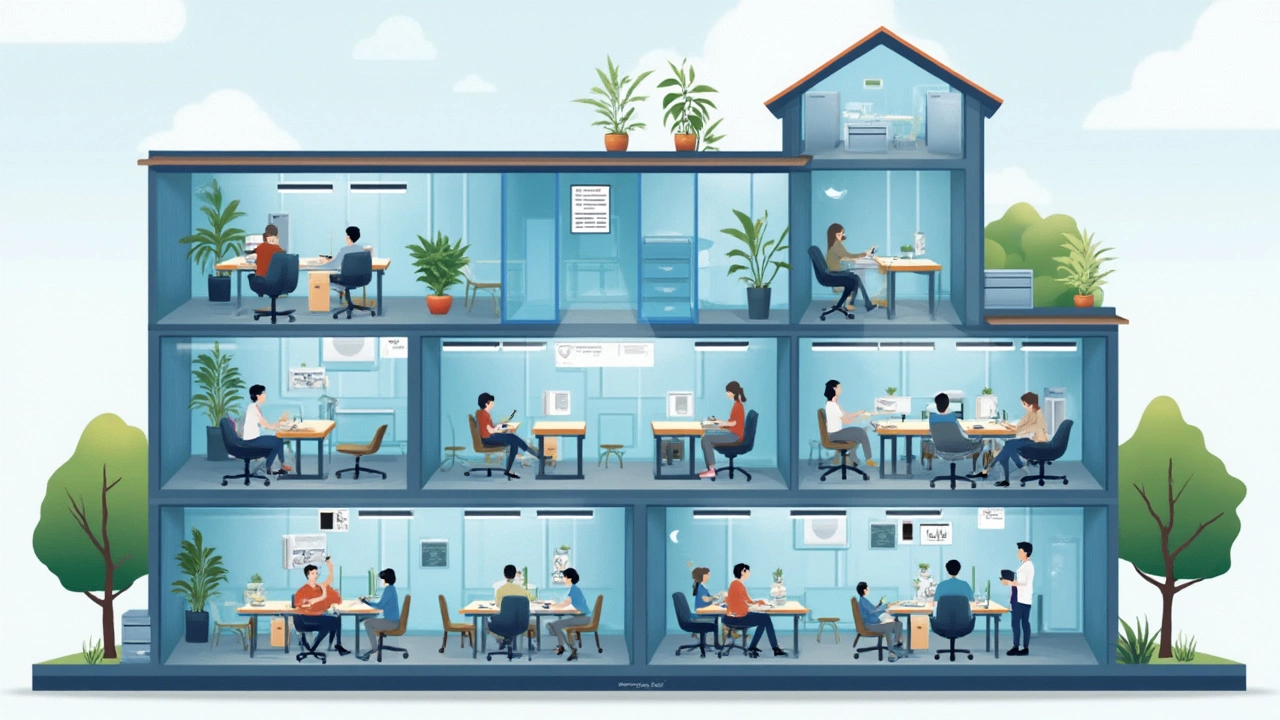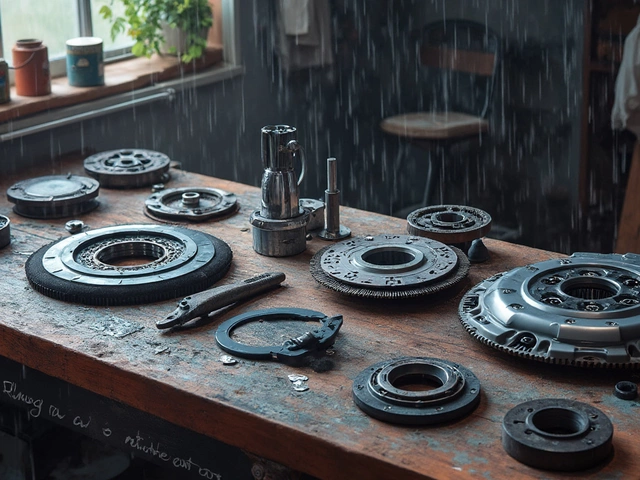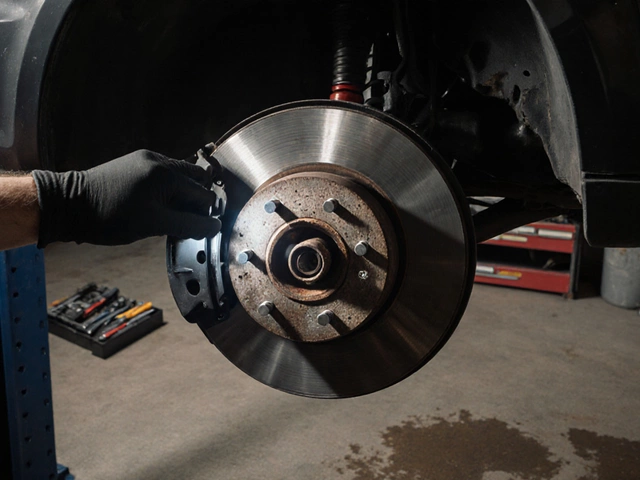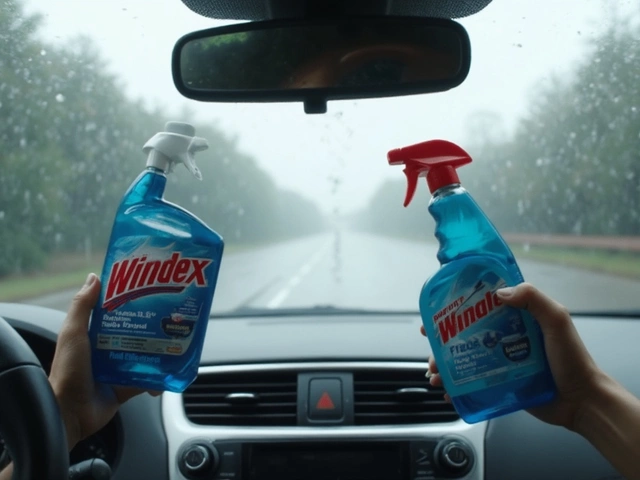Ever wonder what's actually in the air we're breathing indoors? It's not just sunshine and rainbows, that's for sure. Air filters might not be the most exciting thing to think about, but they're key players in keeping the air clean and our lungs happy.
So, what's the deal with air filters? Well, they snag all the nasty stuff like dust, pollen, pet dander, and even some bacteria, before it makes its way into your breathing space. They're kind of like the unsung heroes of indoor air quality. Perfect for anyone with allergies or asthma, or even if you just want to breathe a little easier.
But it's not just about health! Air filters also help your HVAC systems run more efficiently by preventing dust build-up. This means they can save you some serious cash on energy bills and extend the life of your appliances. Neat, right?
- The Basics of Air Filters
- Types of Air Filters
- Benefits of Using Air Filters
- Choosing the Right Air Filter
The Basics of Air Filters
Alright, let's break down what air filters are all about. Basically, they're devices that help clear the air of particles that we don't really want to be breathing in. These particles can range from dust and allergens to some surprising ones like mold spores.
Air filters usually come with different ratings, called MERV (Minimum Efficiency Reporting Values). The higher the MERV rating, the more particles a filter can catch. But, keep in mind, not every filter is created equal. High-rated filters might slow down airflow, affecting your HVAC system.
There are various types of air filters out there, each doing its bit to improve air quality. The common ones include fiberglass filters, which are cheap and easy to find but aren't the best at snatching those tiny particles. Then there are pleated filters, known for their folded surfaces which catch more stuff. And let's not forget HEPA filters, rocking it by blocking up to 99.97% of particles as small as 0.3 microns!
Curious about the impact on your health? An effective air filter can reduce the risks of respiratory issues, especially for those dealing with allergies or asthma. Plus, remember how I mentioned saving money earlier? Yep, filters help your heating and cooling systems work better by keeping the grimy build-up at bay.
Fun fact: According to the Environmental Protection Agency (EPA), improving air filtration can increase the efficiency of a building's HVAC system by up to 20%, which is rather impressive when you think about it!
Types of Air Filters
Not all air filters are created equal, and knowing which type suits your needs can make a world of difference. There are several types to choose from, each with their own perks and quirks.
First up, we have the fiberglass filters. These are the most basic ones you'll find, basically a flat panel of spun glass fibers. They’re cheap and can handle dust and debris, but if you're looking for serious protection against allergens, you might want to keep reading.
Next, we’ve got pleated air filters. Made from cotton or polyester, these filters catch smaller particles thanks to their folded design. The more folds, the better they perform, so they’re a solid step up from fiberglass.
Then there are HEPA filters, short for “High Efficiency Particulate Air.” These suckers are top-notch, grabbing 99.97% of particles as tiny as 0.3 microns. That's basically microscopic. Perfect for allergy sufferers but do note, they're usually pricier.
Ever hear of activated carbon filters? These aren’t just for fish tanks. They use a bed of activated carbon to remove odors and gases in addition to particles. If you have a super sensitive nose or a household with smokers, these can be a game-changer.
Electrostatic filters deserve a mention too. These guys use an electric charge to attract particles. You can find them in both disposable and washable varieties, which is great if you're about saving a few bucks over time.
- Fiberglass Filters: Cheap, basic, best for larger particles.
- Pleated Air Filters: More efficient, captures smaller particles.
- HEPA Filters: Super efficient, great for allergies, but costlier.
- Activated Carbon Filters: Tackles odors and gases.
- Electrostatic Filters: Uses static to attract particles, available in reusable versions.
Fun fact: A study showed that pleated filters can be twice as effective as flat filters in homes with central air systems. So, even if you just want to keep things basic, upgrading a little can make a big difference.

Benefits of Using Air Filters
You might not see them working, but air filters are doing a heck of a lot more than you think. One of the biggest benefits of having these filters is the health boost they give us. Imagine a shield protecting you from annoying invaders like dust and allergens. Yep, that's what these filters do, especially for folks prone to allergies or asthma attacks. They’re like a secret weapon to keep sneezes at bay and lungs open.
But, health perks aren't the only game in town. Want to save some money on those high energy bills? Keeping your air filters in check can help with that too. A clean filter allows air to flow more easily through your HVAC system, meaning it doesn’t have to work so hard. Less work equals less energy consumed and a few more quid saved. Simple as that.
Regularly swapping out your air filters can also be a total game-changer for the lifespan of your HVAC systems. Clogged filters make the system overwork, leading to wear and tear way sooner than expected. Fresh filters mean there’s less dust and debris gunking things up, extending the life of your pricey appliances. Who'd pass on that?
And here's a little nugget of info: good air quality at home or work can even boost our mood and productivity. No one wants to feel sluggish or overwhelmed by invisible fluff in the air.
- Improves overall health by reducing exposure to allergens and pollutants.
- Reduces energy costs by keeping HVAC systems running smoothly.
- Extends the lifespan of your heating and cooling systems.
- Boosts mood and productivity with better air quality.
Choosing the Right Air Filter
Picking the right air filter isn't just about snatching the first one you see on sale. You've got to consider a few things to ensure you're getting the best for your air quality and your wallet. Let's break it down.
First off, know your filter types. There are plenty out there, like HEPA, fiberglass, and electrostatic filters. HEPA filters are the champs at capturing tiny particles, and they're fantastic if you have allergies. Fiberglass filters are usually cheaper but might not last as long. Electrostatic filters use static electricity to catch dust and are often reusable after cleaning. Each type has its pros and cons, so think about what matters to you most.
Next, consider the MERV rating. MERV stands for Minimum Efficiency Reporting Value, and it's a scale from 1 to 20 that tells you how well a filter can trap particles. Higher numbers catch more small particles, but that might also mean your HVAC system has to work a bit harder. A MERV rating between 8 and 13 is solid for most homes, balancing filtering with efficiency.
Don't forget to measure your current filter before purchasing a new one. Sizes could vary, and you want the new filter to fit snugly, right? Most filters have their dimensions printed on the sides, so make sure you jot that down before heading to the store.
Consider your lifestyle too. Got pets? Then you'll probably need to change filters more often to combat all that fur and dander. Or if you're on a budget, you might want to look into buying filters in bulk for some savings.
- Type of Filter: Know the different kinds available.
- MERV Rating: Understand what it means for your air quality.
- Size Matters: Measure your space for a good fit.
- Lifestyle Considerations: Factor in your personal needs, like pets or allergies.
Remember, finding the right filter isn't a one-and-done deal. Keep an eye out for when it's time to replace it. Generally, every 90 days is a good rule of thumb, but it could be more often depending on usage. A good filter not only boosts your home’s air quality but also helps your HVAC systems run smoothly. So take your time, pick the right one, and breathe easy.






